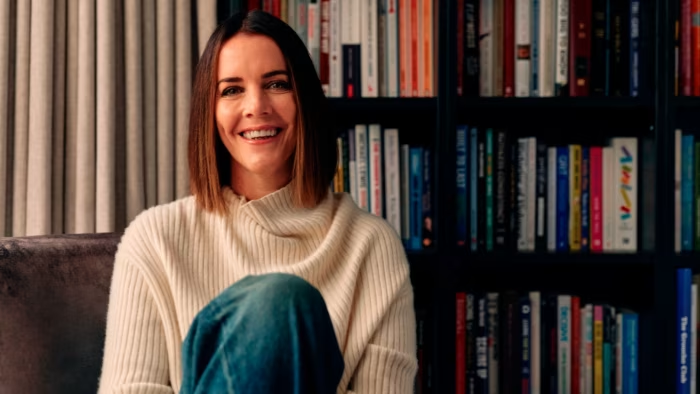Rapha, the high-end British cycling fashion brand whose rapid ascent came crashing to a halt with the end of the pandemic bike boom, is gearing up for a long ride back to profit.
Industry veteran Fran Millar, who became the fourth chief executive in three years when she took charge in September 2024, says her turnaround of the maker of £300 cycling jerseys will take until 2027 to show full results.
“The decisions we’re taking now are things that are going to bounce” Rapha back to “not just profitability but significant growth”, Millar told the Financial Times.
Founded in 2004 by cycling enthusiast and branding expert Simon Mottram, Rapha quickly rose to become one of the biggest names in cycling fashion, known for minimalist designs, high quality and attention to detail.
But annual revenues dropped 13 per cent to £96.2mn in the year to the end of January while the company made a net loss — its eighth in a row — of £15.6mn, according to results due to be published next week. Meanwhile, holding company Carpegna took a £102mn impairment on the brand’s book value, a writedown of more than 60 per cent.
Millar, who was hired from fashion brand Belstaff and has previously run the Team Sky and Ineos Grenadiers professional cycling teams, insists the company can return to a “market pioneering” position after the sharp fall in revenue to a five-year low.
Her plan is to “reduce the losses next year and by 2027 we will be back at profitability” at an Ebitda level.
Rapha’s latest gloomy numbers show that even the biggest names in cycling are still struggling with the pandemic boom and bust, when a sharp rise in the popularity of cycling during lockdowns was followed by a sudden stop.
With 50 per cent year-on-year revenue growth for more than a decade to 2021, the brand “was the Apple of cycling”, former professional cyclist Anthony Walsh said in June in his Roadman podcast, with cyclists wearing its kit as “badges of honour”.
In 2017, Mottram sold a majority stake to RZC Investments — an investment vehicle owned by brothers Steuart and Tom Walton, cycling enthusiast grandsons of Walmart founder Sam Walton — in a deal that valued Rapha at about £200mn.
While Walsh claimed the change in ownership was one cause of Rapha’s problems, Millar rejected that idea, insisting “we’re very lucky in our owners”, who she said took a long-term view. RZC this year provided £15mn in additional capital, following an earlier £39mn debt-to-equity swap.
“The amazing growth in the pandemic probably masked some things that should have been addressed earlier,” Millar said, adding that “a lot of the damage was self-inflicted”.
When new rivals including Café du Cycliste and Pas Normal Studios started to target fashion-savvy cyclists, Rapha began to dabble in non-cycling gear such as hoodies and handbags. At the same time its customers started to complain about declining quality and “boring” designs.

Membership numbers of the Rapha Cycling Club, where people pay £70 a year to go on group rides and have access to exclusive kit, has fallen by a third to 15,000 over the past two years.
Rapha “tried to do lots of things and [was] not focused on doing a few things brilliantly well”, Millar said.
After the pandemic boom faded, the brand had a glut of stock that had to be sold at heavy discounts, which dented profitability and was “not great for the long-term health of the brand” she said.
In her first year, Millar sought to return to a “full-price model”, saying this was the key reason for the drop in revenue last year and adding that a first success was to achieve stability in year-on-year sales of full-price kit.
Looking forward, she is ditching the lifestyle line, pausing the production of cycling shoes and merging the brand’s two long-distance cycling ranges. And this year’s 65 product launches will shrink to roughly half that number in 2026 after a design overhaul.
According to Millar, Rapha had come to rely too heavily on signature designs such as its armband and logo. The first of its new-look products will be unveiled in early 2026 and be available to customers from the summer.
Rapha would not target a return to the kind of sales growth it had last decade, Millar said, adding “low double-digit profitable growth” for the next few years “would be a huge success”.
Holding company Carpegna is set to continue to report net losses as it writes off Rapha’s intangible assets over time. This accounting treatment will not affect Rapha’s cash flows, the company said, but will reduce reported profit by about £10mn a year for a number of years.

Meanwhile, Millar is committed to reinvigorating the Rapha Cycling Club, which the company says is still “the biggest cycling club in the world”, and larger than it was before the pandemic. “I’ve ridden thousands of miles now with our customers all over the world, and [RCC] is just a completely unique area for us.”
One of the most visible changes in the short term is the ending of the brand’s partnership with EF Pro Cycling, a team that participates in big races worldwide including the Tour de France.
Instead, Millar has signed a three-year deal with USA Cycling to sponsor the country’s Olympic team, banking on the 2028 Games in Los Angeles to boost American cycling.
“I was involved in London 2012 and Team Sky,” she said. “And I saw what home Games can do to a nation.”
